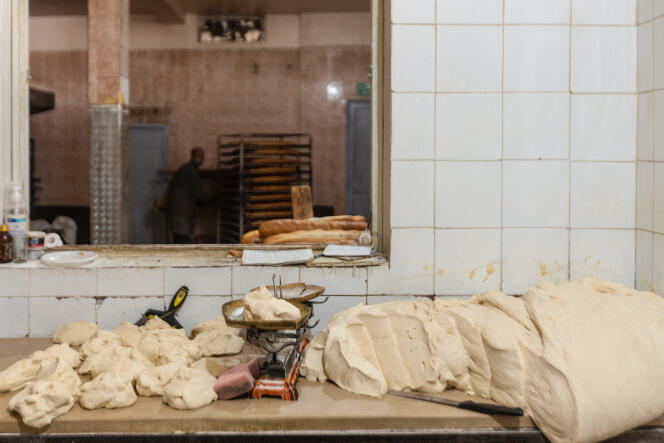


Hanine Bouguerra never imagined she'd find herself in this situation when, in 2019, she and her brother opened their first bakery-pastry shop known as the boulangerie moderne in Nefta, her hometown in southwestern Tunisia. For the past two weeks, her artisanal business has been at a complete standstill after the ministry of commerce took the sudden decision, on Tuesday, August 1, to suspend the supply of flour – a commodity that has become precious and on which the state has a monopoly and controls distribution quotas, for bakeries not subsidized or described as modern.
Hanine is not the only one in this situation. Following a simple fax sent by the ministry of trade to the country's various flour mills, almost 1,500 unsubsidized bakeries have found themselves deprived of the main raw material needed for their business: Flour.
This now-scarce commodity is sold and rationed by the state through two distinct channels: On the one hand, traditional, fully-subsidized bakeries, which purchase flour at a symbolic price, theoretically accompanied by additional state compensation (which the latter has not paid for over a year); on the other hand, modern bakeries, which buy so-called special flour, partially subsidized and costing three times as much.
Affiliated to two different employers' associations, subsidized and non-subsidized bakers have been engaged in a merciless war for several months, blaming each other for the bread crisis, despite the fact that the state has a monopoly on bread. This crisis, which has only worsened with each passing month, has been regularly debated in the media, with almost daily justifications from senior government officials. An inflammatory statement by Tunisian president Kais Saied, pointing the finger at modern bakeries and the prices charged for unsubsidized baguettes, is now jeopardizing the 1,500 businesses concerned, as well as the jobs of some 20,000 workers.
Referring to a Beylical decree dating from January 1956, Saied defended the idea of "a single loaf of bread for Tunisians. Period." accusing the new bakeries set up after 2011 of speculating on subsidized flour, to which they have no access. "We must take urgent measures to put an end to these differences. There can be no bread for the poor and bread for the rich."
A few days later, and taking advantage of a strike notice announced by angry bakers, the minister of trade complied: Modern bakeries, described by the President as cartels, would have no more flour until further notice. "They can sell cakes and ice cream. That's enough for them," Saied said. In a voice message sent to other affiliates, Mohamed Bouanane, president of the National Baker's Union, part of the Tunisian Union of Industry, Commerce and Trade (UTICA) and sworn enemy of modern bakeries, said: "They've taken away the special flour, so you can gorge yourselves on bread (...). You'll see, we'll get the better of them. They've got nothing left."
You have 53.9% of this article left to read. The rest is for subscribers only.
